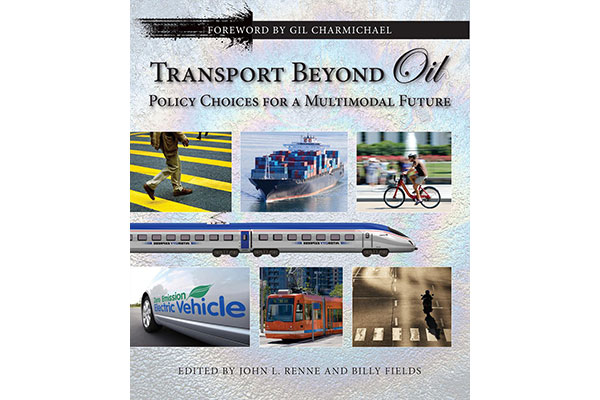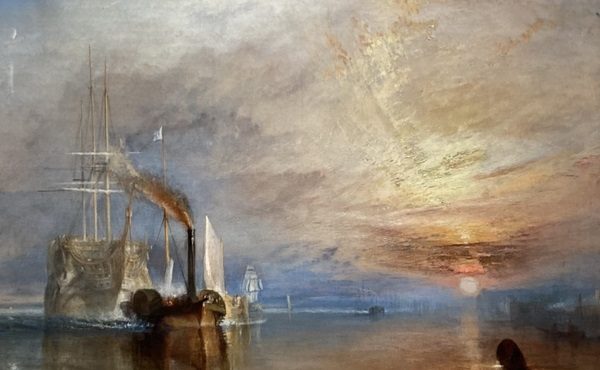
Editors: John L. Renne and Billy Fields (Island Press 2013)
Transport Beyond Oil: Policy Choices For A Multimodal Future, edited by John Renne and Billy Fields, is a collection of papers themed on improving the way we approach transportation policy. It presents opportunities and viable options for improving our transportation systems in an attempt to encourage less dependence on fossil fuels and also presents options for creating healthier, safer and more efficient environments through policy choices.
Topics related to oil usage and transportation choice have become politically charged and polarizing subjects. The mention of another bike lane in any city across North America can cause some people to foam at the mouth. Though there is a chapter in the book dedicated to walking and cycling as important parts of our collective transportation future, editors Renne and Fields broaden the conversation to include the undeniable importance of intercity travel and goods movement.
Renne and Fields argue that urgent changes to transportation policy are needed, especially in the wake of the 2009 recession and with the growing effects of the current climate shift. Timely changes to governing policy are needed to mitigate individual demand for oil and the resultant pollution it creates. The book does not dwell on the second point, instead the chapters insist on it as a known fact.
The first section of Transport Beyond Oil lays out what rising energy costs actually mean to society, in terms of costs associated with suburban commute cities, national security, energy subsidies and induced demand for carbon. The current energy subsidies seen in many parts of the world mask how expensive it is to actually move around. These subsidies effectively induce demand for energy by creating an illusion of affordability. By changing policies around energy subsidies, some demand may be curbed for individual transportation options that may begin to make more efficient and high capacity modes more viable.
The second part of the book explores different opportunities for change and improvement to different aspects of the transportation system, as a whole. One of the best things about this section is that every one of the examples for alternative modes is based on existing systems. Topics range from walking and cycling, to improved freight and passenger rail systems is presented with working examples from around the world and relies on science fact, rather than fiction, for their argument’s optimism.
While its true that some solutions are successful because of local context, the book also discusses how current policies can limit potential solutions. More details on how changes in policy can unleash pent up demand are explored upon in the last section of the book.
Ultimately, Transport Beyond Oil: Policy Choices For A Multimodal Future is an interesting look at the current transportation system and how it could possibly function in the future. It provides an in-depth look at the underlying policy and shows where it is actually limiting progress. Though this book is focused on the American context and policy structure, all of its lessons are universal. It showcases multiple transportation solutions at different scales and emphasizes that context and scale is important to a transportation systems success. Current and future demand must be included in any analysis to fully inform new policy development. No one mode or technology will fully curb demand for energy or reduce green house gas emissions, but using a blend of ideas informed by local contexts is a good place to start.
***
Andrew Cuthbert is studying regional and environmental planning at the University of Calgary. In addition he works as a GIS Analyst in environmental consulting. When not working Andrew can most likely be found on his bike taking in the sights and fresh air.




One comment
These words – transport… oil…. policy…. head hurts. And I think of a joke I’ve heard. Mayor Ford walks into a library.